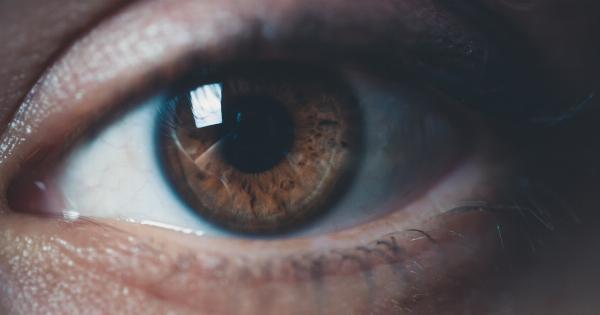Headaches are a common ailment that most people experience at some point in their lives. While most headaches are harmless and go away on their own or with simple remedies, there are certain uncommon causes of headaches that require special attention.
In this article, we will explore these uncommon headache causes and provide tips on how to identify and avoid them.
1. Sinusitis
Sinusitis is a condition characterized by inflammation and swelling of the sinuses, which can cause headaches.
If you frequently experience headaches along with other symptoms such as facial pain, pressure, or nasal congestion, it may be a sign of sinusitis. Consult a healthcare professional to get an accurate diagnosis and appropriate treatment.
2. Temporomandibular Joint Dysfunction (TMJ)
TMJ dysfunction refers to problems with the jaw joint and surrounding muscles. These issues can lead to headaches, jaw pain, and difficulty in opening or closing the mouth.
If you suspect TMJ dysfunction as the cause of your headaches, consult a dentist or maxillofacial specialist for evaluation and treatment options.
3. Medication Overuse
Overuse of certain medications, particularly painkillers, can paradoxically lead to headaches. This is known as medication overuse headache or rebound headache.
If you notice that your headaches become more frequent or intensify after taking pain medications regularly, it is essential to speak with a healthcare professional about alternative treatment strategies.
4. Sleep Apnea
Sleep apnea is a sleep disorder characterized by pauses in breathing during sleep, leading to fragmented sleep and decreased oxygen supply. Many people with sleep apnea experience morning headaches.
If you often wake up with a headache, accompanied by loud snoring or excessive daytime sleepiness, it is advisable to consult a sleep specialist for evaluation and appropriate management.
5. Caffeine Withdrawal
Caffeine, when consumed regularly, can lead to physical dependence. Abruptly stopping caffeine intake can cause withdrawal symptoms, including headaches.
If you are a regular caffeine consumer and experience headaches upon abrupt cessation or reduction of caffeine intake, try gradually decreasing your consumption instead of stopping abruptly.
6. Eye Problems
Poor visual acuity or uncorrected refractive errors can strain the eye muscles, leading to headaches. If you experience headaches that are predominantly around the eyes or forehead, it may be due to underlying eye problems.
Schedule an eye examination with an optometrist or ophthalmologist to determine if vision correction is necessary.
7. Neuralgia
Neuralgia refers to sharp, stabbing or shooting pains that occur due to irritation or damage to a nerve. Conditions such as trigeminal neuralgia or occipital neuralgia can present with severe headaches.
If your headaches are severe, recurrent, and occur in specific areas, consult a healthcare professional to investigate whether neuralgia is the underlying cause.
8. Dehydration
Dehydration can lead to headaches as the brain is sensitive to changes in fluid balance. If you experience headaches along with other signs of dehydration such as dry mouth, dark urine, or fatigue, try increasing your fluid intake.
Aim to drink at least eight glasses of water per day and more during hot weather or intense physical activity.
9. Stress and Tension
Stress and tension are among the most common reasons for headaches. While occasional stress-related headaches are normal, chronic stress can lead to more frequent and severe headaches.
Engaging in stress management techniques such as relaxation exercises, yoga, or breathing exercises can help reduce the frequency and intensity of stress-related headaches.
10. Neck and Posture Issues
Poor posture, tense neck muscles, or misalignment in the cervical spine can contribute to headaches. If you frequently experience headaches that are accompanied by neck pain or stiffness, it may be related to your posture or neck position.
Pay attention to your posture, practice neck exercises, and consider ergonomic changes, such as using a supportive pillow or adjusting your workstation setup.
Conclusion
While most headaches are benign and self-limited, it is important to be aware of uncommon headache causes that require attention.
If you experience frequent, severe, or atypical headaches, it is advisable to consult a healthcare professional for proper evaluation and diagnosis. By identifying and addressing the underlying causes of your headaches, you can effectively manage and alleviate the pain, improving your overall quality of life.































